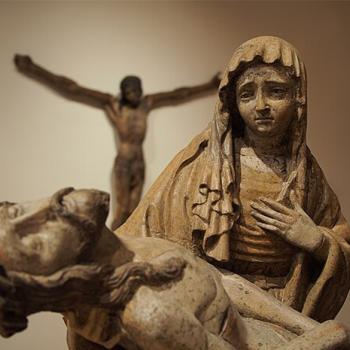SAMPLE
WORLD RELIGIONS
Course Description
This course explores the nature and function of religion in human life by investigating the diversity of religious experience and expression across several cultures. The emphasis of this course is equally placed on comparative and historical religion. Thus, we will attempt to understand both the specific contexts and conditions in which a variety of religious traditions arose and exist, and also the common religious elements in the specific historical manifestations of individual religions. It is through this attention to some of the common elements of different traditions that we will develop an understanding of what it means to be religious, how religion shapes and guides societies, and what religion means and how religion functions in the life of individuals. One of the central, orienting questions that will run throughout this course is how religions change and adapt themselves to new historical and geographical settings, and especially how the five world religions we examine have adapted themselves to modernity.
Course Goals
- To acquire orderly knowledge of the historical development, major teachings, and current practices of selected living religious traditions;
- To try to understand a religion as a committed practitioner might, not simply as a detached observer;
- To develop a richly nuanced conception of religion that recognizes both the social and the personal dimensions of religious belief and practice; and
- To develop and maintain an attitude of critical self-awareness about the limits and possibilities of our intellectual tools and methods for understanding religion.
Course Requirements
This course is packed with substantial material, both in the lectures and the readings. It is expected that students will attend every lecture and prepare all the readings before they arrive in class.
There will be two take-home essay exams, each of which should be 6-8 pages in length, and which will be worth 50% each for students in the in situ section of the class; for online students, these exams will be worth 40%, and participation will be worth 20%.
Required Readings:
All "basic" readings available at www.patheos.com.
Diana L. Eck, Darsan: Seeing the Divine Image in India (Columbia)
Eugene Herrigel, Zen in the Art of Archery (Vintage)
Peter Brown, The Cult of the Saints: Its Rise and Function in Latin Christianity (Chicago)
Farid Esack, On Being a Muslim (Oneworld)
Class Schedule and Readings:
Thursday 17 September - Introduction to the Course and Judaism




